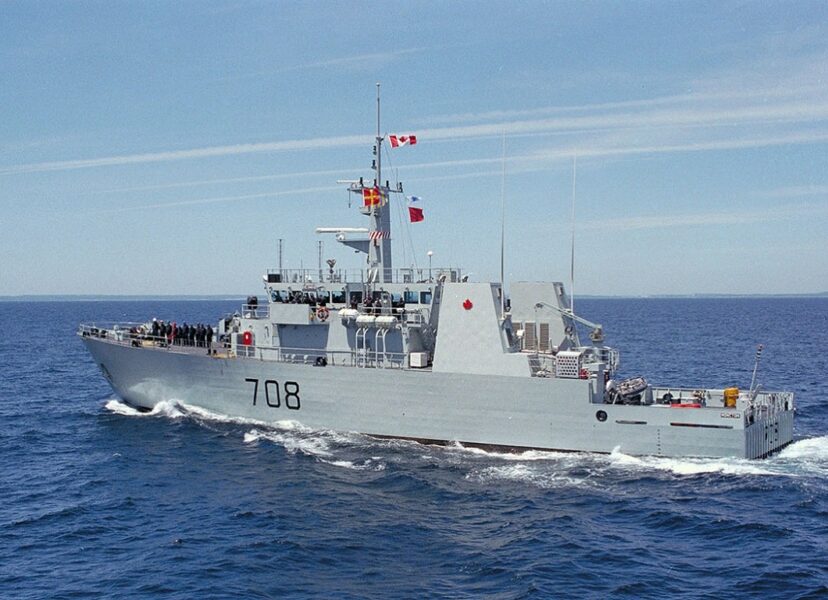Canada Deploys (HMCS) Glace Bay and Moncton Amidst Crisis In Haiti
- TDS News
- Breaking News
- February 17, 2023

Haiti, the poorest country in the Western Hemisphere, has been facing a dire crisis for several years, which has been further exacerbated by the COVID-19 pandemic, natural disasters, and political instability. The country has been plagued by violence, corruption, and poverty, which have left millions of Haitians struggling to survive. The deployment of two Canadian ships to the region and the delivery of three Mine-Resistant Ambush Protected (MRAP) armoured vehicles purchased by the Haitian government for the use of the Haitian National Police. This will be the third delivery in less than six months, highlighting the severity of the crisis and the need for international assistance.
The current situation in Haiti is a result of a complex interplay of political, economic, and social factors. The country has a long history of political instability, including numerous coups, dictatorships, and foreign interventions. The assassination of President Jovenel Moïse in July 2021 has further deepened the political crisis and sparked widespread protests and violence. The interim government, led by Prime Minister Ariel Henry, has struggled to maintain control and establish stability as the country continues to grapple with corruption, gang violence, and poverty.
Haiti is also facing an economic crisis, with high inflation, unemployment, and a lack of basic services. The country relies heavily on foreign aid and remittances from Haitians living abroad, but these sources of income have been impacted by the COVID-19 pandemic. The devastating earthquake that struck Haiti in 2010 also contributed to the country’s economic woes, as it caused widespread damage and loss of life. According to official estimates, 222,570 people were killed, 300,000 injured, 1.3 million were displaced, 97,294 houses were destroyed, and 188,383 were damaged.
One of the most pressing issues in Haiti is gang violence, which has been on the rise in recent years. Gangs control large parts of the country, including the capital city of Port-au-Prince, and engage in kidnappings, extortion, and other criminal activities. The violence has caused widespread fear and has forced many Haitians to flee their homes. The situation has been further complicated by the presence of armed groups that are affiliated with political factions and operate with impunity.
The Canadian government’s decision to deploy two Kingston-class ships to the region and provide armoured vehicles to the Haitian National Police is a sign of the seriousness of the crisis in Haiti. The ships will patrol in and around Haitian waters, focusing on the waters in the vicinity of Port-au-Prince, which is the epicentre of the violence. The armoured vehicles will aid the Haitian National Police in combating gang violence, and the overflights by RCAF CP-140 Aurora long-range patrol aircraft will help to provide intelligence, surveillance, and reconnaissance of gang activities.
However, while the deployment of Canadian ships and armoured vehicles is a welcome development, it is not a long-term solution to the crisis in Haiti. The country needs sustained international support and assistance to address the underlying causes of the crisis and to establish a stable and democratic government without strings attached. The Canadian government has long been working with the international community to provide aid and technical assistance to Haiti, to promote transparency and accountability, and to support the development of democratic institutions. However, with all the aid that pours into the country, the path to prosperity and stability remains uncertain.
In addition to the political and economic crises in Haiti, the country is also facing a humanitarian crisis. The COVID-19 pandemic has hit Haiti hard, with low vaccination rates and a weak healthcare system. The recent earthquake that struck the country in August 2021 has further compounded the humanitarian situation, with tens of thousands of people left homeless and in need of assistance.
Haiti has a severe problem with gender equality and women’s rights in the country. Women and girls in Haiti face significant challenges, including gender-based violence, lack of access to education and health care, and discrimination. The Canadian government has been working with local organizations to promote women’s rights and gender equality and to provide support to women and girls.
The collapse of Haiti has been a result of various factors, including historical colonization, devastating natural disasters, and economic instability. However, the role played by France cannot be overlooked, as they demanded a sum of 150 million francs for Haiti’s independence to compensate for their lost revenues from slavery in 1825. This debt crippled the country and prevented it from achieving economic stability and development, considering the country had to borrow from the Bank of France to pay its debt.
Haiti was once a beautiful and prosperous country with a vibrant culture, rich history, and stunning natural beauty. However, the country has been ravaged by years of colonization, exploitation, and natural disasters. The ruins of colonization can still be seen today in the form of dilapidated buildings and crumbling infrastructure. The country’s people continue to suffer immensely.
Despite these challenges, the Haitian people remain resilient and determined to rebuild their country. Their cultural richness continues to inspire hope and optimism, and the world has seen glimpses of the nation’s potential through the work of Haitian artists, activists, and entrepreneurs.
Haiti remains a country with incredible potential, and its people continue to demonstrate their strength in the face of adversity. It is our hope that the nation will rise again and fulfill its true potential as a thriving, vibrant, and independent nation.








